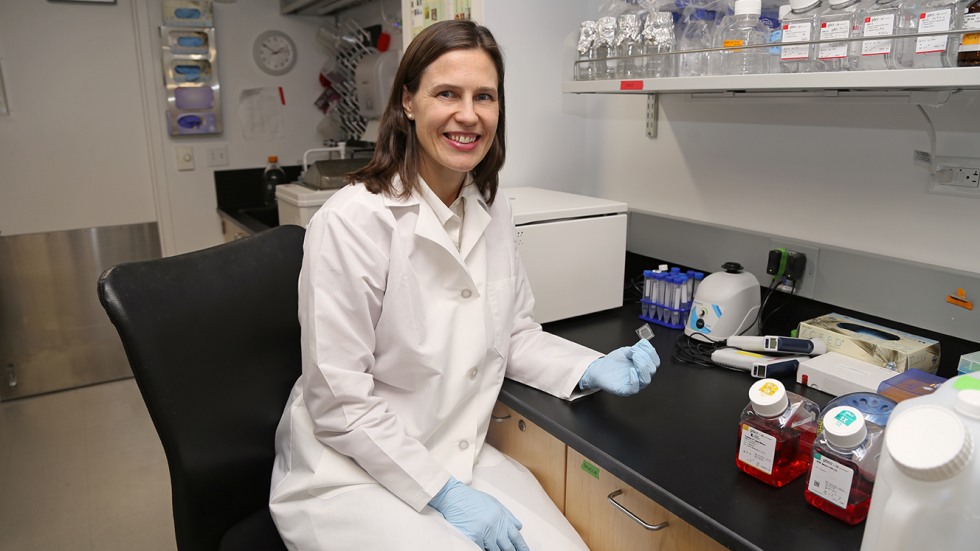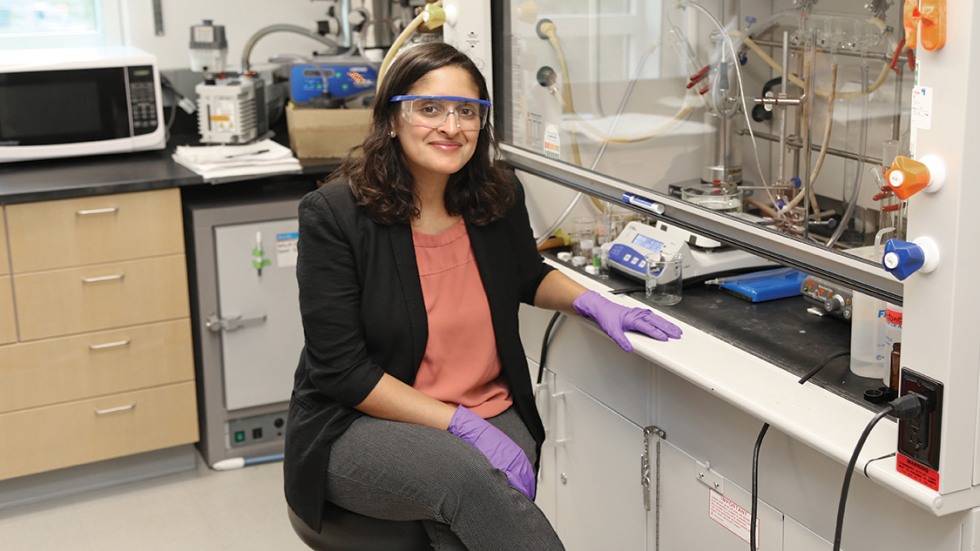Engineering assistant professors Kareen Coulombe, who is working to make therapeutic drugs safer for the heart, and Anita Shukla, who is evaluating the effectiveness of antifungal nanoparticles, were among the leaders of research teams recently named Brown Biomedical Innovations to Impact (BBII) award recipients. In its second annual cycle of awards, BBII also included technology that analyzes the cries of infants for signs of opioid withdrawal, gene therapy treatment for post-traumatic osteoarthritis, and the development of a malaria vaccine. Each project led by Brown University research teams was awarded $100,000 to help translate its scientific discoveries into commercial products that benefit patients.
BBII is an accelerator fund that supports academic biomedical technologies that have potential for making a substantial impact in health care, and is run by the University’s Division of Biology and Medicine in collaboration with Brown Technology Innovations, part of the Office of the Vice President for Research.
During the development process, new drugs must be tested for harmful effects on the heart, called cardiotoxicity, and the project of team members Coulombe, an assistant professor of engineering and medical science, Bum-Rak Choi, an associate professor of medicine (research), and Ulrike Mende, a professor of medicine, aims to develop a more predictive human cell-based test to establish safe drug exposures. They have built a new human cardiotoxicity testing platform using engineered 3D human heart microtissues from stem cells to quantify dose-dependent changes in electrical activity. The project’s comprehensive arrhythmia risk assessment of test compounds is aimed at streamlining drug development, reducing the risk for life-threatening cardiac arrhythmias and advancing safe drugs for patients.
Shukla is working to reduce dangerous fungal infections that have high mortality rates and often involve long-term and costly treatment. This research will involve antifungal liposomal nanoparticles developed in the lab, which have the potential to overcome challenges including reducing toxicity of antifungal compounds. The lab will complete in vitro and in vivo characterization of nanoparticles enhanced with fungi-targeting agents and investigate their effectiveness.
Managing director of BBII Karen Bulock, said the goal of the commercial development program launched by the University in 2018 “is to support biomedical technologies that need additional work to become products that have commercialization potential,” explaining there is often a gap between the time federal research funding ends and private investors are ready to invest.
“We have been focused on supporting and building capacity for translational science,” said Dr. Jack A. Elias, senior vice president for health affairs and dean of medicine and biological sciences. “The BBII awards have been a great tool to help researchers move their discoveries along that pathway toward commercialization.”
With an ultimate goal of launching new products and companies based on Brown research findings, BBII is part of Brown and the Innovation Economy — an initiative launched in 2018 outlining a set of strategic actions for how the University can best contribute to innovation and the growth of stable, well-paying jobs in Rhode Island. BBII was started with $8 million in philanthropic gifts from Brown donors.
“BBII is a cornerstone of Brown’s efforts to inspire and support innovative research that will improve people’s lives, including treatments and cures for diseases,” said Jill Pipher, vice president for research.
The five projects awarded in 2020 add to a set of projects funded in BBII’s first award cycle in 2019. Project proposals were reviewed by an advisory committee that includes venture capitalists and experts in the pharmaceutical business. The faculty members leading each project will receive initial funding beginning this month and additional funds as they meet milestones.

